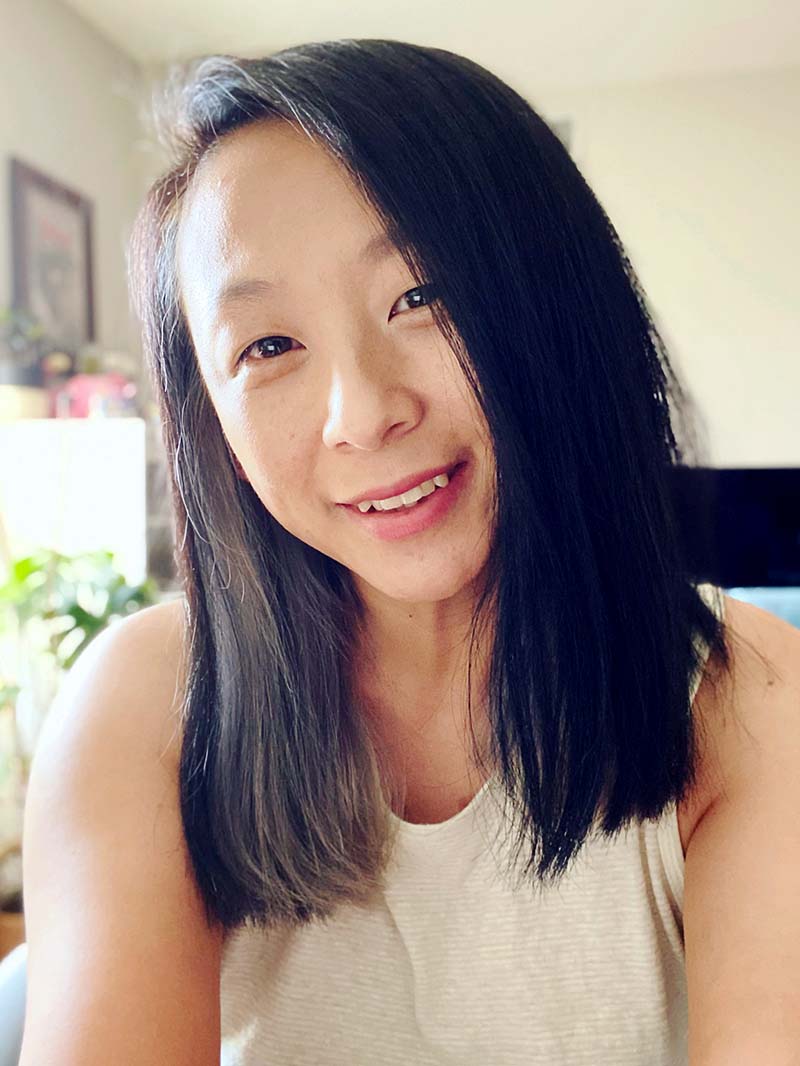
Lisa Thorn, MPP'23, had established a successful art career at Los Angles-based video game developer Riot Games. After nearly a decade of leading creative projects and mentoring artists at Riot, she found a new passion: organizing and advocating for the people she worked with. She decided to leave the tech industry in order to apply her leadership and knowledge to resolving systemic issues (such as workplace discrimination) which she knew were not unique to the video game industry.
Thorn challenged the stereotypical “bro” culture in her former workplace, and established equitable compensation and hiring strategies that would generate more diverse teams and more welcoming, equitable work environments. She felt most fulfilled as a manager and prided herself on helping her team build their careers and grow as individuals
“I loved helping people build up their career, allowing them to recognize how intelligent and valuable they are, the potential they had,” she says. “It became less about videogames and art and more about the opportunity to help people grow and change their future.”
Deciding what to do next wasn't easy, she admits. “My last year at Riot lasted about three years,” she says with a laugh. She was interested in public policy, but it took her a while to come around to the idea of graduate school. “I didn’t have a lot of trust in the education system or in academia. But I knew if I wanted to help people in a really broad way, I needed to gain a lot of skills and to understand a lot of issues I didn’t know about.”
Thorn stumbled across Brandeis in searches online and was attracted to Heller’s existing work on race and gender equity, including the school’s transparent efforts to create a diverse and equitable academic environment. “The focus on not just political science, but also sociology, also caught my eye.”
Now she’s a student in the Master of Public Policy (MPP) program, and is concentrating on economic and racial equity. She’s also gotten involved with a nascent initiative on racial justice and tech policy, for which the Heller School received a $1 million gift in January 2022. She’s fascinated by the intersection of labor policy, racial justice and the tech industry.
“Tech has been unregulated for so long, and it’s long been inaccessible to women and people of color. And beyond the employment issues, there are also policy questions around the data the tech industry collects on people, how that information gets bought and sold, and the impacts that data can have on groups of people, on misinformation, even on efforts to destabilize democracies. The stuff that can happen when people know how to utilize technology is wild.”
Of everything she’s experienced at Heller so far, Thorn has most enjoyed getting to learn from colleagues and faculty who are passionate about what they do. She says, “The professors are so excited to teach, and they respect the students as adults. We all come to Heller with our own wealth of knowledge and life experience, and we’re not treated like kids. I appreciate that.”
Thorn says she was shocked by the level of diversity she’s encountered in the classroom. “I grew up in a small town in Minnesota where I was the only Asian kid in my school. To be in an educational space with people from so many different backgrounds and life experiences, from different countries and all over the United States–it has been amazing. That exposure to lives that are so different from my own, it shapes my ability to understand why people think and do things differently from me. I appreciate that, and I appreciate how honest and vulnerable people are. It helps us all grow. And I think it’s a rare thing.”
She’s already looking ahead to summer internship opportunities in the Boston area and hopes to continue working with the Racial Justice x Tech Policy initiative at Heller’s Institute for Economic and Racial Equity. Though she’s open to a variety of career paths, Thorn has started to consider becoming a community organizer.
“I love the challenge of communicating difficult concepts in a digestible, approachable, relatable way,” she says. “And organizing people is ultimately what changes public policy.”
